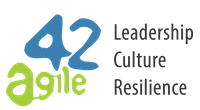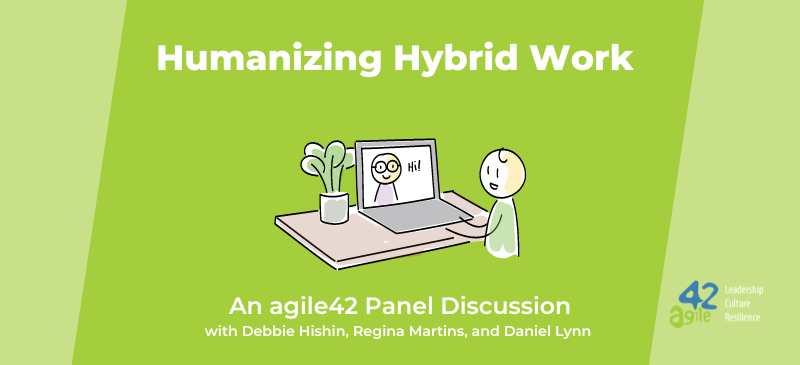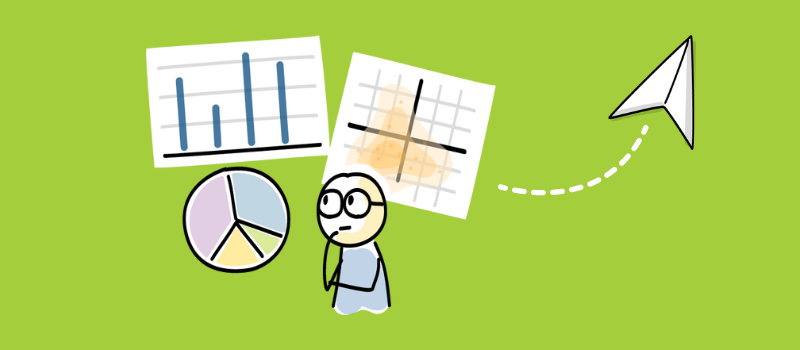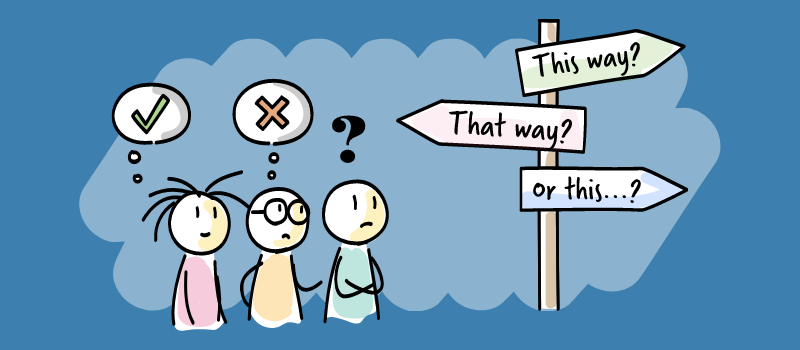A decision making approach for resilience
/by Giuseppe De Simone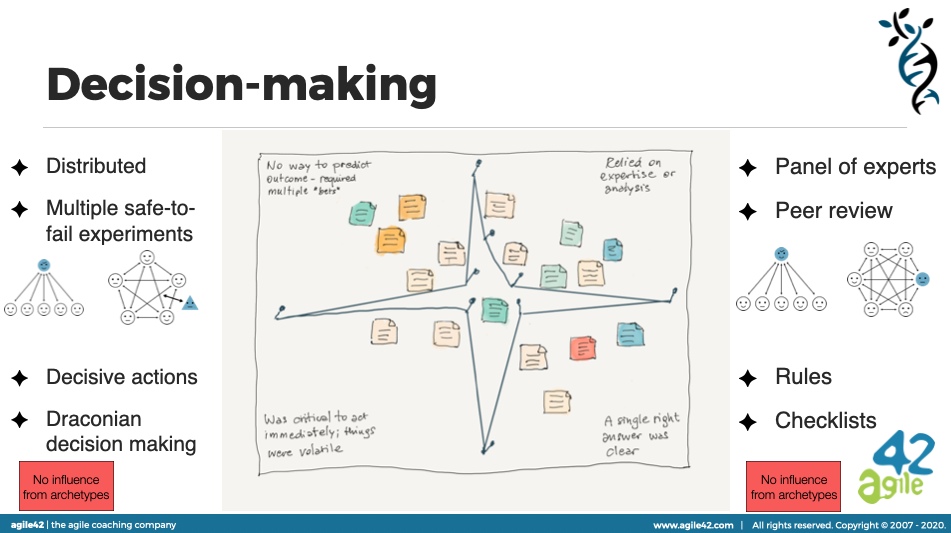
Decision-making is an essential process in every organization and can be used as a proxy for the level of resilience and agility. There aren't any right or wrong ways to decide and there are trade-offs involved in each approach.
For example, centralized decision-making processes lead to more coherent decisions at the cost of longer information flows and synchronization delays. If decisions are distributed and frequent, the organization might instead be more autonomous and responsive at the cost of process coherence. In both cases the downsides can be partially offset, e.g. by deploying information systems or by increasing the cultural coherence.
In our latest webinar on November 16th, called “A decision making approach for resilience”, continuing the series on ORGANIC agility topics, we explored Principle #2 and how to use a common and transparent framework for decision-making processes which adapts to each specific context.
Using the Cynefin framework as a guide, we have created a specialized approach to decision-making based on the Cynefin domains, separating out two processes, which are both critical for resilience:
- Situational analysis: this is how the people making the decision perceive the context in which the decision needs to be made.
- Decision-making: how the actual decision-making is carried out, based on the situational analysis.
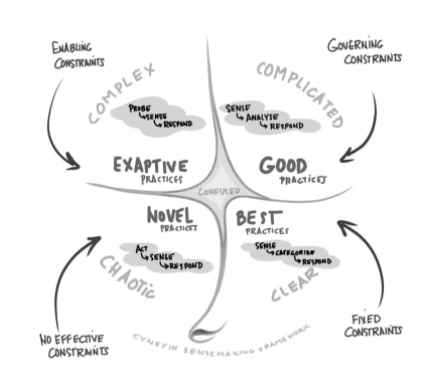
Both parts of the decision-making process are critical for resilience. In order to quickly recover from failure and adapt to changing circumstances, the organization must have the ability to manage the trade-off between speed, risk, and anticipated consequences.
We explored how a situational analysis can be done, through both individual and group sense-making, and we provided an overview of possible decision-making based on context:
- When the problem at hand is self-evident and doesn’t require specific knowledge or expertise, the organization must have defined policies, processes or tools in place, so that every employee knows when such constraints apply, either because they are common sense or because they are explicitly taught as part of the organization's on-boarding process. The way to improve decision making in this context is to hold regular reviews of those policies and see if small changes can improve the quality of decisions.
- When some sort of expertise or analysis is necessary to make a decision, then the approach to decision making is to identify the experts in the specific domain, allow them to provide options (vetted through peer review) and then decide based on those options. To improve decision quality, multiple experts can collaborate, facilitated by a non-expert who can introduce naive questions, avoiding the risk of analysis paralysis and a limited expert point of view. If the experts cannot decide between multiple coherent options within a reasonable amount of time, we might follow into the next scenario.
- When it is impossible to analyze a situation given the high level of volatility and uncertainty, then the approach to decision making is to run multiple parallel probes, in the hope that certain patterns will emerge that will help decision making. Under such conditions expertise doesn’t play a role, and in fact can hinder if experts cannot see beyond the scope of their expertise, and instead of exploring potential patterns they see every new input through their pre-existing mental models (to an expert in hammers every problem will be a nail).
- When in a true crisis, it is impossible to analyze the situation, because the volatility is so high that even experimentation won’t help. The only way to proceed is to make decisions with authority as fast as possible. A bad decision is better than no decision at all, as it will create some constraints that will allow patterns to emerge in the system. We recognize such situations as chaotic and very energy-draining, but the presence of constraints and creation of coherence will allow us to move back into a context where experimentation is possible.
Last we discussed how organizational Archetypes can influence the way these decision making patterns are implemented in practice.
If you want to know more, you are welcome to join one of our upcoming trainings ORGANIC agility Foundation valid for Certified Agile Leadership - Essentials, Teams & Organizations
- 08 - 11 February 2021
- 06 - 09 April 2021
- There is a BLACK FRIDAY discount valid until 27.11.2020
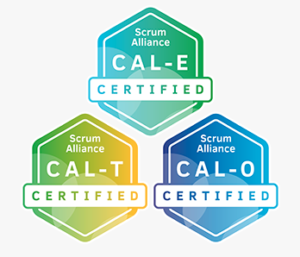
You are also welcome to have a look at our book ORGANIC agility Foundations: Leadership and Organization!
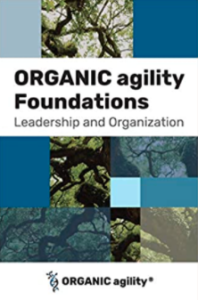
The recording is available online. Feel free to watch it again and share with your network. It is also available on YouTube.
Below you will find the slides, with some further content. Please also feel free to share the slides around.
Connect with us on social media, to stay updated with blogs, webinars, training and other events which support your learning journey :) We hope to see you in the webinar regarding Principle #3 in January.
From here you can check out post and upcoming webinars! The list is updated frequently.
Have a great week everyone!
Author
-
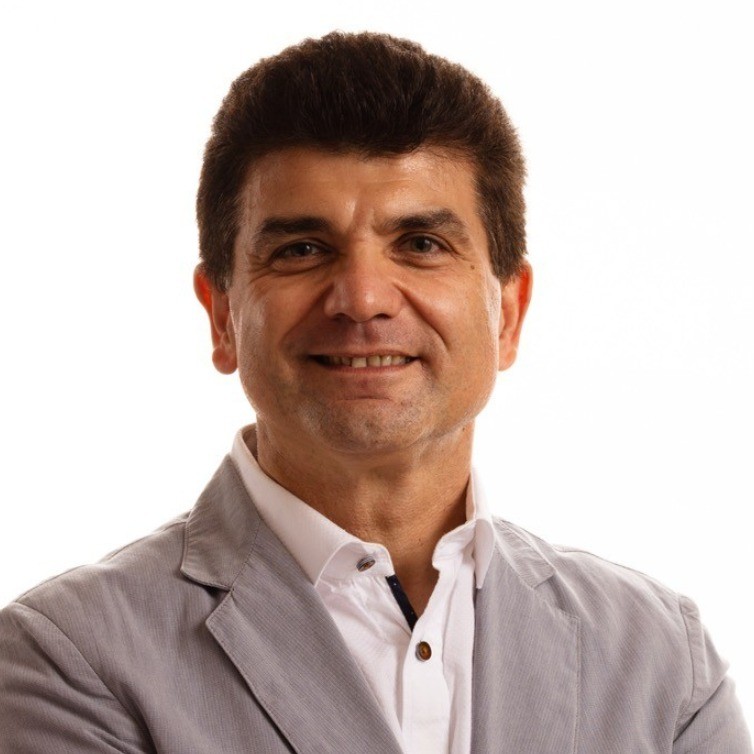
Giuseppe De Simone is a Certified Scrum Trainer (CST), Certified Enterprise Coach (CEC) and Certified Team Coach (CTC), passionate about helping individuals, teams and organizations become more productive by embracing Agile values, principles and practices. He is one of very few to be accredited from the Scrum Alliance as an educator of the Certified Agile Leadership and Path to CSP programs.
View all posts
